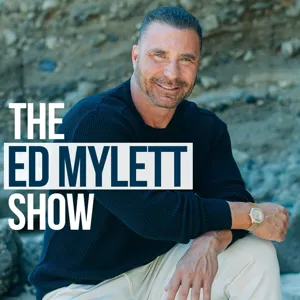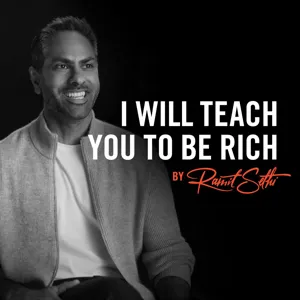Podcast Summary
Fostering self-regulation skills in childhood for financial responsibility: Developing self-regulation skills in childhood through chores or allowance systems can lead to greater financial responsibility in adulthood.
While there is no definitive scientific research on the best way to teach children financial responsibility through allowances, research suggests that self-regulation skills developed in childhood can lead to greater financial responsibility in adulthood. Self-regulation refers to the ability to rule oneself and make choices that benefit long-term goals over immediate desires. By the age of 3 or 4, children have the capacity for multiple conflicting motives and need the ability to choose the better option. Therefore, fostering self-regulation skills through various methods, such as chores or allowance systems, can contribute to financial responsibility later in life. However, there is ongoing debate about the most effective methods for teaching financial responsibility to children, and further research is needed.
Measuring Self Regulation in Children: Researchers use tests like the marshmallow task and unwanted gifts to measure self regulation in children. Boys and girls differ in self regulation levels, but evidence is conflicting. Older children show more pronounced differences. Angie advocates for a shift towards project-based learning and a more engaging education system.
Self regulation varies greatly among children, even at a young age. Researchers use tests like the marshmallow task and giving children unwanted gifts to measure self regulation. There's a lot of variability, with some kids able to wait a long time for rewards and others unable to wait at all. Boys and girls may differ in self regulation levels in young children, but the evidence is conflicting. As children grow older, the differences become more pronounced. The education system, according to Angie, could benefit from a shift towards project-based learning and a more engaging, intellectually stimulating environment. Angie criticized the current factory model of education, which focuses on cramming knowledge into students' heads in an inefficient way.
Project-based learning vs. Traditional education: While project-based learning can be effective, the traditional education model may not teach financial responsibility or the value of effort and contribution to others.
The traditional education model and the way we approach learning and work may not be optimal. George Lucas, a renowned filmmaker, advocates for project-based learning, where students are given projects instead of memorizing facts. However, the education system may not be effectively preparing students for the real world by not providing value to others or teaching them financial responsibility through allowances. A study by the American Institute of Certified Public Accountants found that while parents believe the primary purpose of allowance is to teach financial responsibility, children often spend their allowance on non-essential items. This highlights the importance of understanding the relationship between effort and value, which is more deeply ingrained when we work for our money rather than receiving it as a gift.
Learning Financial Responsibility Through Paid Jobs: Encouraging kids to earn money through jobs outside home fosters money management skills, savings habits, and work experience. If an allowance is preferred, scaffold the saving process.
While the traditional view of allowance as a tool for teaching children financial responsibility may not be effective, having them earn money through paid jobs outside the home can be beneficial. This is because working for someone else helps kids learn to manage money, save, and gain valuable work experience. The speaker, who gave her daughters jobs as soon as it was legal, shared that her older daughter, Lucy, learned to ask for financial advice, save money, and even read financial literacy books. However, if an allowance is preferred, it's crucial to encourage saving and scaffold the process. The speaker acknowledges that most kids prefer to spend their allowance and suggests giving them the freedom to do so if that's the family's preference. Ultimately, the key is to find a method that suits the family's values and goals.
The 'Bank of Dad' or 'Bank of Mom' method for teaching kids about saving: Encouraging kids to save through matching their deposits, setting goals, and allowing them to make financial decisions fosters financial literacy and independence.
Encouraging children to save money and teaching them financial responsibility can be achieved through various methods. One effective approach, as discussed, is the "Bank of Dad" or "Bank of Mom," where parents match their children's savings. This not only motivates kids to save but also doubles their money. However, the key to success is planning and setting clear goals for the savings. The conversation also touched upon the importance of allowing children to make their own financial decisions and learn from their experiences, even if they don't always result in success. Listening to listeners' stories about their first jobs, it's clear that earning money at a young age can instill a sense of independence and responsibility. Overall, the common thread is the importance of fostering financial literacy and empowering children to manage their own money.
Encouraging kids to work and contribute from a young age: Allowing children to start working odd jobs between ages 10-14 helps develop responsibility, independence, earn money, and learn skills, leading to future success.
Children should be encouraged to learn the value of work and contribute to their families and communities at an early age. According to a survey by Statista, a large percentage of American parents allow their kids to start working odd jobs between the ages of 10 and 14. This not only helps children develop a sense of responsibility and independence, but also allows them to earn money and learn important skills. Angela shared her own experiences of being useful and contributing to her family from a young age, and George Vaillant's research on industriousness supports the idea that this stage of development is crucial for future success. By allowing children to take on small tasks and responsibilities, we can help them become confident, capable individuals who are ready to make a positive impact on the world.
Working hard as a child predicts success and mental health in middle age: Working hard, whether paid or unpaid, as a child can shape one's perspective on work and life, leading to better success and mental health in middle age
The ability to work hard as a child can predict success and mental health in middle age better than socioeconomic status. Personal experiences of hard work, whether paid or unpaid, can shape one's perspective on work and life. Some jobs may provide little financial reward but can be mentally and physically draining. The importance of work goes beyond just earning money; it's about learning valuable skills, understanding what not to do, and gaining a sense of fulfillment. Encouraging children to work from a young age can help them develop these important lessons and set them up for future success.
The Complexity of Deciding Whether Children Should Work: Considering individual circumstances, work or an allowance can have positive or negative impacts on children's lives. Provide opportunities for growth and learning is essential.
The debate around whether children should work or not is complex and depends on various factors. While some studies suggest that working as a young person can have negative effects on quality of life, other research indicates that it can have positive outcomes, such as reducing crime rates. However, it's essential to consider the context and background of the children involved, as those from disadvantaged backgrounds might already have lower quality of life scores due to their circumstances. Ultimately, the decision should be based on individual circumstances, and there's no definitive answer to whether an allowance or a job is better for a child. The key is to provide opportunities for growth and learning, whether it's through work or other means. Regarding the factual errors in the discussion, Steven mistakenly attributed the song "Valerie" to British soul singer Amy Winehouse when it was originally recorded by the indie rock band The Zootons. Additionally, he stated that Winehouse died of an overdose, but the official cause of her death was alcohol poisoning.
George Lucas's Hidden Role in Raiders of the Lost Ark: Despite Steven's denial, George Lucas significantly contributed to Raiders of the Lost Ark as the story creator and a collaborator on subsequent Indiana Jones films.
George Lucas's involvement in the making of Raiders of the Lost Ark was more significant than Steven's insistence let on. Lucas was not only an executive producer but also contributed the story and collaborated with Spielberg on other Indiana Jones films. Angela, despite mispronouncing the name of a Harvard Medical School psychiatrist, made an accurate factual statement about Lucas's role in the iconic film. The discussion then shifted to attachment theory, inviting listeners to share their experiences of how their childhood relationships with parents have shaped their lives. The episode was produced by the Freakonomics Radio Network and featured contributions from various staff members. A notable detail from the conversation was the revelation of Lucas's extensive role in Raiders of the Lost Ark, which contradicted Steven's claim but was actually factual.





